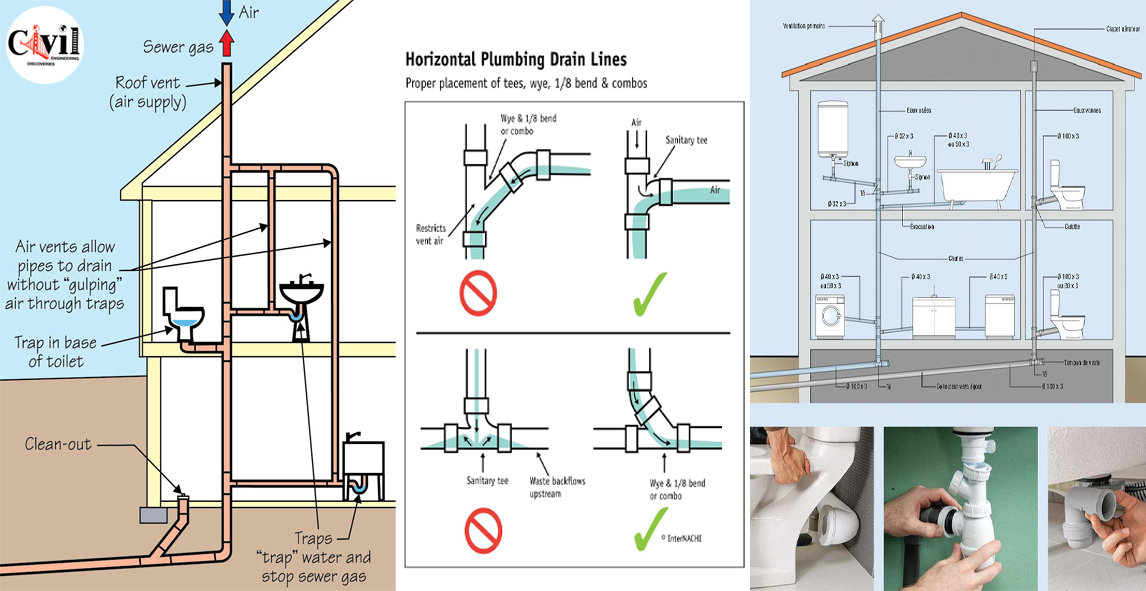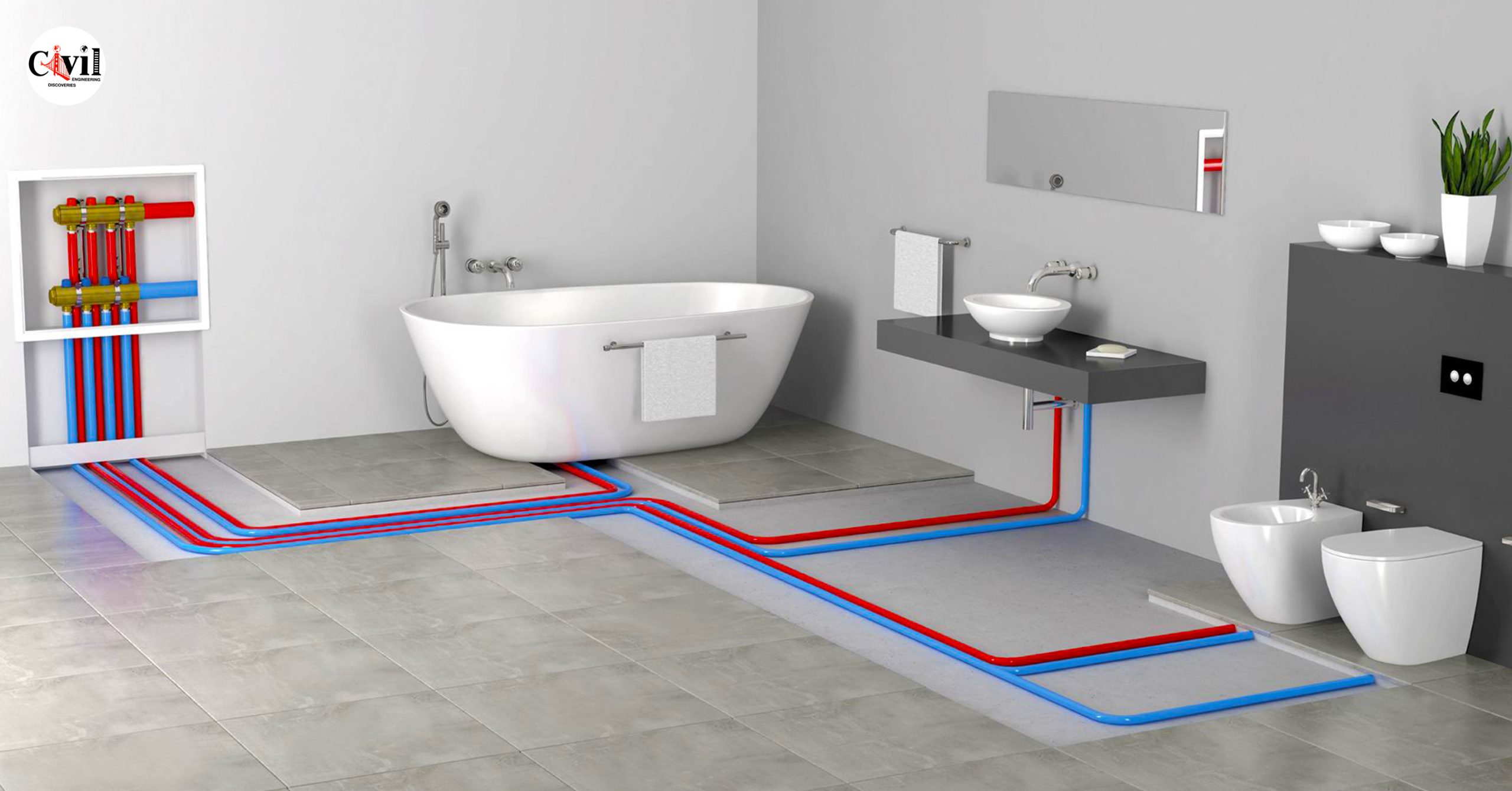The Core Elements of Your Home's Plumbing System
The Core Elements of Your Home's Plumbing System
Blog Article
We've uncovered this post pertaining to Plumbing Installation 101: All You Need to Know listed below on the net and believe it made perfect sense to write about it with you on this site.

Comprehending exactly how your home's plumbing system functions is crucial for every house owner. From supplying clean water for drinking, food preparation, and bathing to safely eliminating wastewater, a properly maintained plumbing system is essential for your household's wellness and convenience. In this detailed overview, we'll explore the elaborate network that comprises your home's pipes and deal pointers on maintenance, upgrades, and managing typical concerns.
Intro
Your home's pipes system is greater than simply a network of pipelines; it's a complicated system that guarantees you have accessibility to tidy water and efficient wastewater removal. Understanding its elements and just how they interact can help you avoid pricey repairs and ensure everything runs efficiently.
Standard Elements of a Pipes System
Pipelines and Tubes
At the heart of your plumbing system are the pipes and tubing that bring water throughout your home. These can be made from different materials such as copper, PVC, or PEX, each with its advantages in regards to durability and cost-effectiveness.
Fixtures: Sinks, Toilets, Showers, and so on.
Components like sinks, commodes, showers, and bathtubs are where water is made use of in your home. Recognizing just how these components attach to the pipes system helps in diagnosing troubles and preparing upgrades.
Shutoffs and Shut-off Factors
Valves regulate the circulation of water in your pipes system. Shut-off valves are vital throughout emergency situations or when you require to make fixings, permitting you to separate parts of the system without interrupting water circulation to the whole home.
Water System
Key Water Line
The primary water line links your home to the community water supply or a private well. It's where water enters your home and is distributed to numerous components.
Water Meter and Pressure Regulator
The water meter measures your water use, while a pressure regulator ensures that water flows at a safe stress throughout your home's pipes system, preventing damages to pipelines and fixtures.
Cold Water vs. Hot Water Lines
Recognizing the difference between cold water lines, which supply water directly from the main, and warm water lines, which bring heated water from the hot water heater, helps in fixing and planning for upgrades.
Water drainage System
Drain Pipes Pipes and Traps
Drain pipelines bring wastewater far from sinks, showers, and bathrooms to the sewer or sewage-disposal tank. Traps stop sewer gases from entering your home and additionally trap debris that can trigger clogs.
Air flow Pipelines
Air flow pipes permit air right into the drain system, preventing suction that might slow water drainage and cause catches to vacant. Proper air flow is important for keeping the integrity of your pipes system.
Importance of Appropriate Drain
Making certain appropriate drainage protects against back-ups and water damages. Frequently cleansing drains pipes and preserving catches can prevent expensive fixings and prolong the life of your pipes system.
Water Heating System
Kinds Of Water Heaters
Hot water heater can be tankless or conventional tank-style. Tankless heating systems warmth water on demand, while storage tanks save heated water for prompt use.
Updating Your Plumbing System
Reasons for Updating
Updating to water-efficient fixtures or replacing old pipelines can boost water quality, minimize water costs, and enhance the value of your home.
Modern Pipes Technologies and Their Advantages
Explore innovations like wise leakage detectors, water-saving toilets, and energy-efficient hot water heater that can conserve cash and reduce environmental effect.
Price Factors To Consider and ROI
Calculate the in advance prices versus lasting savings when thinking about pipes upgrades. Lots of upgrades spend for themselves via lowered utility bills and fewer repair work.
Exactly How Water Heaters Attach to the Plumbing System
Comprehending just how hot water heater attach to both the cold water supply and warm water circulation lines helps in detecting concerns like insufficient warm water or leakages.
Upkeep Tips for Water Heaters
Routinely flushing your water heater to remove sediment, checking the temperature settings, and inspecting for leaks can expand its life-span and enhance power effectiveness.
Typical Plumbing Problems
Leaks and Their Causes
Leakages can take place as a result of maturing pipelines, loose fittings, or high water pressure. Addressing leakages immediately stops water damage and mold growth.
Obstructions and Clogs
Obstructions in drains and toilets are often brought on by purging non-flushable products or a buildup of oil and hair. Making use of drain displays and bearing in mind what decreases your drains can protect against blockages.
Indications of Plumbing Issues to Watch For
Low tide pressure, slow drains pipes, foul odors, or uncommonly high water bills are indicators of prospective plumbing problems that ought to be attended to quickly.
Plumbing Upkeep Tips
Routine Evaluations and Checks
Schedule yearly pipes evaluations to catch concerns early. Search for indicators of leaks, deterioration, or mineral accumulation in faucets and showerheads.
Do It Yourself Maintenance Tasks
Basic tasks like cleansing faucet aerators, looking for toilet leakages utilizing dye tablet computers, or protecting revealed pipes in cool climates can protect against major pipes problems.
When to Call a Specialist Plumbing Technician
Know when a plumbing concern requires specialist knowledge. Trying complex repair services without proper understanding can lead to more damages and higher repair service expenses.
Tips for Lowering Water Usage
Basic habits like taking care of leakages quickly, taking much shorter showers, and running complete loads of laundry and meals can preserve water and lower your utility costs.
Eco-Friendly Pipes Options
Take into consideration sustainable pipes products like bamboo for flooring, which is durable and environmentally friendly, or recycled glass for kitchen counters.
Emergency situation Preparedness
Steps to Take During a Plumbing Emergency situation
Know where your shut-off shutoffs are located and how to shut off the water in case of a ruptured pipeline or major leak.
Significance of Having Emergency Situation Calls Handy
Keep contact information for regional plumbing professionals or emergency situation solutions readily available for quick reaction throughout a pipes situation.
Ecological Impact and Preservation
Water-Saving Components and Appliances
Installing low-flow faucets, showerheads, and toilets can substantially lower water use without giving up efficiency.
Do It Yourself Emergency Situation Fixes (When Applicable).
Short-term fixes like using duct tape to patch a leaking pipe or positioning a container under a trickling tap can decrease damages till a specialist plumbing shows up.
Final thought.
Comprehending the makeup of your home's pipes system encourages you to preserve it successfully, conserving time and money on repairs. By following normal upkeep routines and staying educated about modern pipes modern technologies, you can guarantee your plumbing system operates successfully for several years ahead.
Understanding Your Home Plumbing System: A Comprehensive Guide
Plumbing System: The Lifeline of Your Home
At its core, the plumbing system is designed to perform two primary functions: bring fresh water into your home and remove wastewater. The system is a network of pipes, fixtures, and other components that transport water and sewage. Residential plumbing systems include potable water supply lines, drain-waste-vent (DWV) systems, and various plumbing fixtures that make water use in daily tasks possible.
Key Components:
Water Supply: This part of your plumbing system brings municipal water into your home, passing through the main water supply line. It s responsible for supplying all water needs, from drinking to bathing.
Drainage System: It carries waste and water away from your home to the sewer or septic system. This system includes all the piping within your home that leads to external sewage or septic systems.
Vent System: An essential yet often overlooked component, the vent system allows sewer gases to escape and lets air into the drainpipes, ensuring water and waste move correctly through the system.
Fixture: More Than Just Taps and Toilets
Plumbing fixtures are the most interactive parts of the plumbing system, including faucets, showers, toilets, and sinks. Each fixture is connected to the plumbing system and plays a role in either the delivery of freshwater or the disposal of waste and wastewater.
Types of Fixtures:
Faucets and Sinks: Used for washing hands, dishes, and other daily water needs. Toilets: Dispose of human waste through the sewage system. Bathtubs and Showers: Provide bathing facilities, requiring both hot and cold water supply. Water Supply: The Source of Life
The water supply system is a critical component, ensuring that potable water is available throughout your home for various uses, including drinking, cooking, and cleaning. This system consists of pipes that distribute water to different parts of the house, controlled by valves to regulate the water flow.
Types of Plumbing: Materials and Methods
Various types of plumbing systems and materials are used in residential settings, each with its advantages and applications. From copper and PVC pipes for water supply to cast iron and ABS for drainage, the choice of materials can impact the longevity and efficiency of your plumbing system.
https://intownplumbingtx.com/articles/home-plumbing-system-guide/

Do you appreciate more info about ? Put a comment down below. We will be pleased to hear your feelings about this blog. We hope to see you back again in the near future. Don't hesitate to take the time to share this blog posting if you appreciated it. We recognize the value of your readership.
Give Me A Quote! Report this page